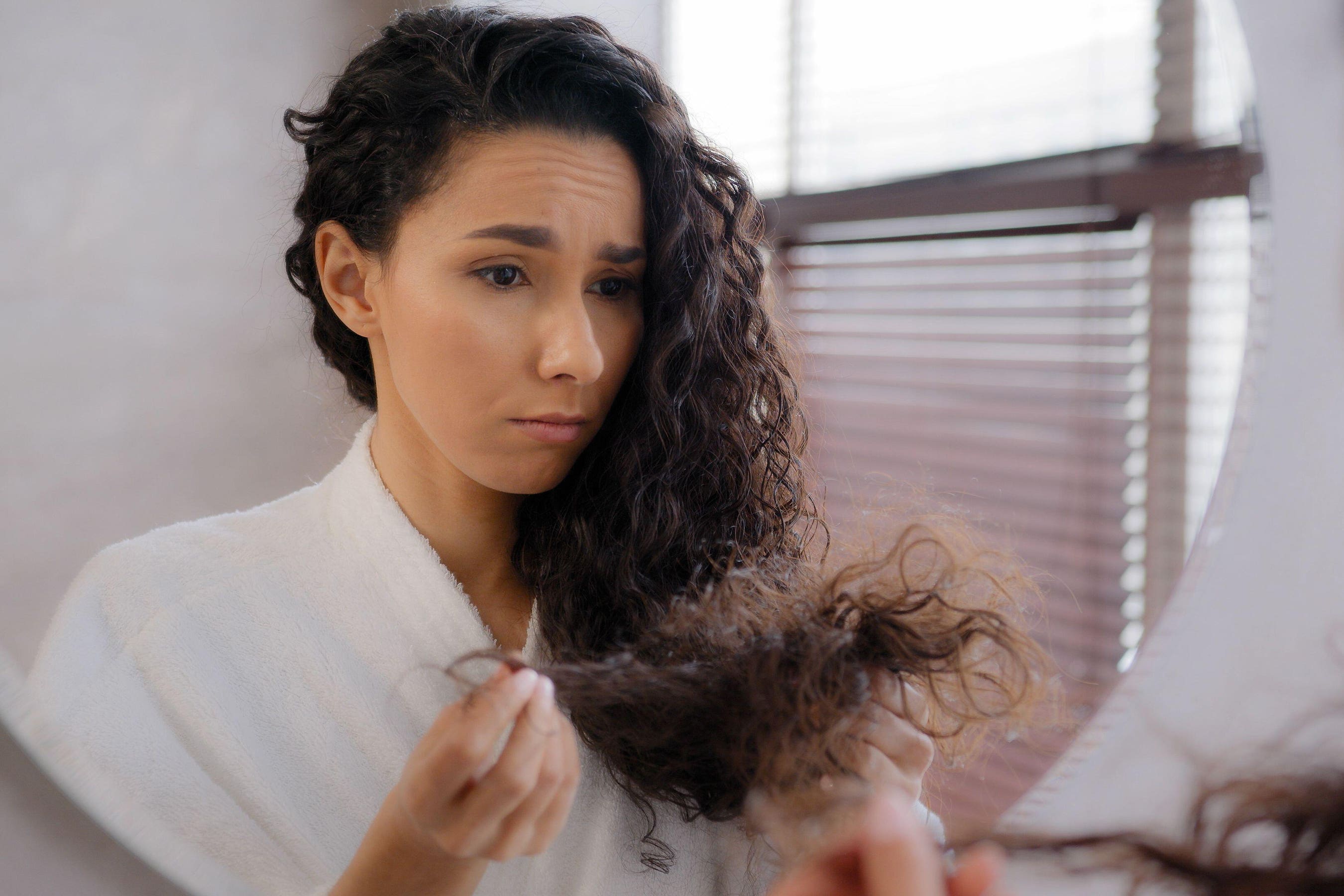6 ways to make weak or damaged hair stronger
Katie Wright asks hairdressers for their advice on how to achieve healthy locks.

Healthy, shiny and strong is the gold standard when it comes to hair, but all too often our locks end up in less than optimal condition – and no amount of leave-in conditioner or anti-frizz serum can save the day.
“Weak hair [is caused by] breakage in the disulphide bonds that create the hair’s structure,” explains Errol Douglas MBE, hair stylist and Living Proof (livingproof.co.uk) hair expert. “We create damage daily – from chemical treatments to applying heat, and even tension from tying it up.”
Whether long or short, curly or straight, the signs of weak tresses are easy to spot. Hair that’s dry, frizzy, dull, has split ends and is more tangled than usual – or all of the above – has likely been damaged by external factors, and is in need of some TLC.
Here, hair stylists talk through the best ways to look after damaged hair…
1. Turn down the heat
Blasting your hair with heat is a surefire way to frazzle your strands.
“Try and leave your hair to air dry as often as possible,” says celebrity stylist and Olaplex (uk.olaplex.com) ambassador Halley Brisker. “Styling tools which get extremely hot – such as flat irons, tongs or wands – I would say completely avoid where possible.”
If you do regularly blow-dry your hair, Douglas advises: “Invest in a good quality tool which harnesses the latest technology to reduce heat, or at least lets you choose your heat setting. I use the Dyson Supersonic and it’s been a game-changer.”
2. Use heat protector
“Everyone – regardless of how healthy or damaged their hair might be – should use a product with heat protection before heat styling their hair,” Douglas says.
A bit like sunblock for your hair, a spray or serum creates a protective barrier on the hair shaft.
Douglas adds: “Remember to comb through after applying your product, to ensure you get through even the densest parts of your hair.”
3. Consider a bonding treatment
Bonding treatments work to repair the disulphide bonds that give hair its structure.
“A pre-wash bonding treatment like Olaplex No 3, which should be rinsed out before you shampoo, will rebuild those broken bonds and strengthen hair from within,” suggests Brisker. It can also be used on top of Olaplex No 0 for twice the potency.
“I urge all my clients to use a bond builder, as every hair type and texture will benefit,” says Douglas, who recommends the new Living Proof Triple Bond Complex.
4. Avoid harsh chemicals
If your locks are looking parched, it’s important to prevent further damage by avoiding certain chemicals.
“Don’t use heavy or harsh products on your hair, such as bleach or ammonia,” Brisker suggests. “Avoid long-lasting hold styling products, as these [can] contain alcohol and harsh ingredients.”
Why not ask your colourist about using dye mixed with bonding treatment, or switching up your usual colour? Brisker says: “If you lighten your hair regularly, try to opt instead for a slightly darker toner/wash to avoid damage from harsh formulas or bleach.”
5. Use a mask regularly
As well as shampooing and conditioning as usual, add a weekly moisturising mask into your routine.
“Masks penetrate the internal structure of the hair for deeper treatment benefits,” Douglas explains. “The key takeaway is to always use as directed, this way you’ll reap the benefits of what the product has been formulated for.”
6. Don’t wait too long between haircuts
While at-home treatments can work wonders on tired tresses, you’ll need a hairdresser’s help to snip away split ends that are beyond repair.
“Have a regular trim to keep damaged ends manicured,” Brisker says. “It will remove the problem areas and help you avoid further breakage down the line.”
Some of the best hair strengthening treatments
Living Proof Triple Bond Complex, £42
Olaplex No 0 Intensive Bond Building Treament, £28; No 3 Hair Perfector, £28
Coco & Eve Bond Building Pre-Shampoo Treatment, £23
Philip Kingsley Bond Builder Restore & Repair Trio, £52 (was £80)
Bookmark popover
Removed from bookmarks